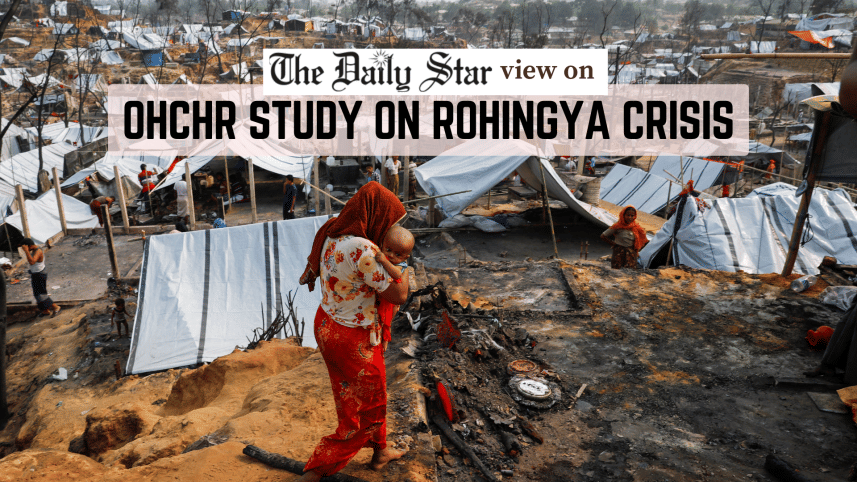Aid alone is not enough for the Rohingya

The tragic saga of the Rohingya people stranded in Bangladesh, now in its eighth year, has been defined as much by an extraordinary humanitarian response as by a glaring political failure. While the international community has mobilised aid on an unprecedented scale to sustain over a million refugees, a new report from the Office of the UN High Commissioner for Human Rights (OHCHR) reiterates what has long been clear to us: that charity alone is not a solution. The crisis requires a political resolution, and the voices of the Rohingya themselves must guide the way.
The OHCHR study, based on interviews with 125 Rohingya men and women, cuts through the geopolitical inertia to reveal a simple truth. The refugees' desire is not to reside indefinitely in camps, but to return home to Myanmar. This aspiration hinges on obtaining full citizenship, recognition of their Rohingya identity, and guarantees of equal rights, education, and freedom of movement. For them, justice means land restitution, compensation, and accountability for past crimes. The international community has been painfully slow to deliver on these core demands, however.
This is further complicated by the deeply fraught situation on the ground. The OHCHR report highlights a deep distrust of the Arakan Army (AA), an armed group that has gained significant territorial control in Rakhine State. The majority of respondents, comprising over 70 percent, fear the group is seeking to "erase" the Rohingya from Arakan. That's a major obstacle to any repatriation efforts. The ongoing conflict between the Arakan Army and Myanmar's military junta also creates a security vacuum that leaves the Rohingya trapped between hostile forces. Rohingya respondents have, therefore, called for active leadership from the UN, regional powers, and the Organisation of Islamic Cooperation to pressure Myanmar's political actors so as to provide guarantees for any repatriation agreement. Their plea for self-determination extends to a clear demand for direct engagement with educated Rohingya representatives, signalling their belief that a new leadership is needed to navigate their future.
As the international community convenes for a high-level conference on the crisis at the UN Headquarters in New York on September 30, the findings of this report must serve as a wake-up call. The focus must shift from a purely humanitarian approach to a political one, which addresses the root causes of the crisis—the ingrained racism and religious intolerance that 65 percent of the respondents cited. The call for UN peacekeeping missions or internationally protected safe zones in key townships like Maungdaw and Buthidaung shows that physical security is the first precondition for any return.
The time is overdue for the UN and regional powers to move beyond rhetoric and provide the political pressure, security guarantees, and platforms for dialogue that will enable a truly voluntary, safe, and dignified return. The future of the Rohingya cannot remain confined to aid dependency; it must be anchored in the restoration of their rights, recognition of their identity, and the ability to live safely and with dignity in Myanmar.



 For all latest news, follow The Daily Star's Google News channel.
For all latest news, follow The Daily Star's Google News channel.
Comments